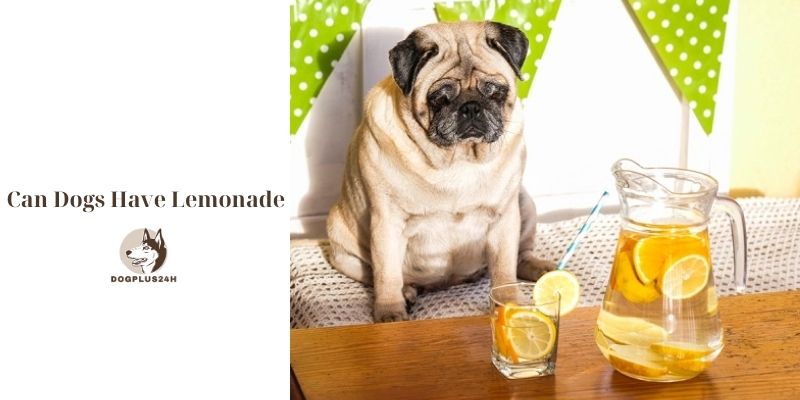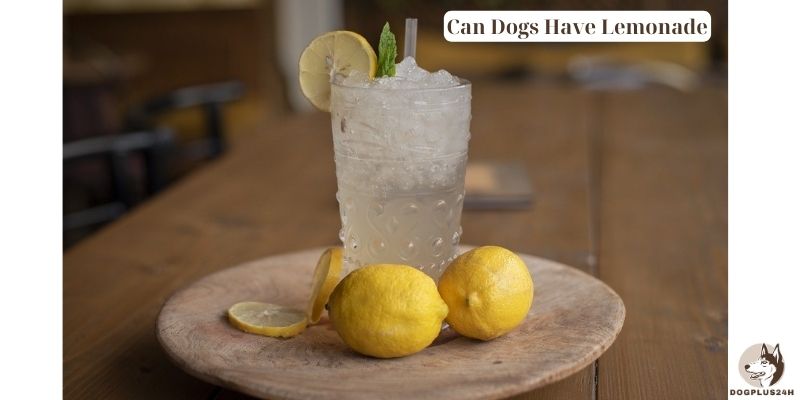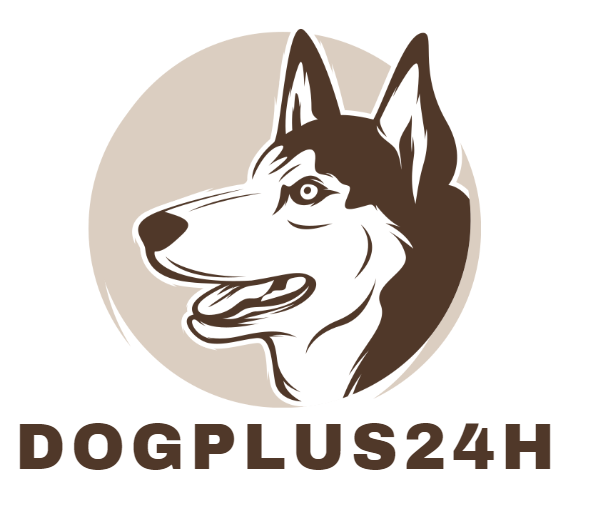Can Dogs Have Lemonade? Lemonade is one of the few beverages that can truly relieve your thirst, especially on a hot summer day. It provides one of the world’s best balances, with equal parts sweetness and sourness while remaining completely refreshing. Can Dogs Have Lemonade? The answer is regrettably no; dogs cannot consume lemonade.
Even lemonade that is made entirely naturally still has ingredients that are harmful for your dog to drink. What exactly makes lemonade a bad choice for dogs, then? What should your dog be drinking in its place, then? Dogplus24h.com will answer all your questions in this article below:
Can Dogs Have Lemonade?

Even while some dogs will consume almost anything, this does not imply that they ought to. But you should create lemonade if life hands you lemons, right? After all, the main component of a freshly squeezed glass is a lemon.
However, they’re also the main deterrent for giving lemonade to your dogs. Citric acid, which is present in lemons, is the main aggressor to your dog’s digestive system.1 Although there have been few reports of this, it may cause nervous system depression at greater doses. Dogs are thought to be poisonous to lemon, which can result in vomiting, decreased appetite, diarrhea, and occasionally even skin irritation.
Psoralen and limonene are two other significant chemicals found in lemons in addition to citric acid. Psoralen may cause skin irritation and redness when combined with ultraviolet light or sunshine, although this seems to be a pretty uncommon occurrence, and we were unable to locate any confirmed cases of it happening in dogs after consuming lemons. Dogs detest lemons because of their sour flavor, which may contribute to the problem, as well as the fact that they would not deliberately consume enough of the fruit to produce this peculiar symptom.
The essential oil contains a significant amount of limonene, which is poisonous to dogs, cats, and horses. Pure citrus oil can cause serious neurological symptoms in cats, including weakness, shaking, incoordination, drooling, and occasionally even coma and death. Similar symptoms in dogs are possible, although there is little information available on them.
Lemon Ingredients Harmful to Dogs:

1. Citric Acid:
Lemons, oranges, grapefruits, and other citrus fruits have high quantities of this acid. Dogs are not like humans, who are perfectly capable of consuming citric acid. These fruits might upset your dog’s tummy after only a few pieces. Larger doses may cause your dog more serious health problems, such as depression of the central nervous system. Drowsiness, disorientation, loss of coordination, and loss of consciousness are all possible signs of a central nerve depression.
2. Limonene:
All citrus fruits, including lemons, produce the terpene limonene, which gives citrus fruits their distinctive aroma. Ingesting limonene is hazardous to dogs as well. Ingesting d-limonene, which has insecticidal qualities, can be harmful to a dog because of how the liver processes it. Ingestion of d-limonene can have toxic, poisonous, harmful, and even fatal effects on the liver.
3. Linalool:
This compound is present in all lime trees and gives citrus fruits their fragrant scent. Like limonene, this terpene is an insecticide and is frequently found in soaps and lotions. There is cause for concern if your dog consumes lemon fruit or leaves because they contain high levels of linalool. For dogs, linalool can result in severe symptoms that linger for a long time, such as liver failure and liver damage.
Psoralen is a plant compound that can make dogs photosensitive or phototoxic. It is found in citrus, especially lemon and lime plants. Psoralen side effects might include sun sensitivity in the skin and eyes.
What should canines not drink?

1. Coffee or Tea
Dogs can become intoxicated by caffeine quite easily. Dogs, which normally weigh less than people, might react negatively to even small amounts of caffeine.
2. Juice
Most beverages have artificial flavors, sweeteners, and colors that dogs shouldn’t drink. A nice illustration of how most complete juices are safe in moderation is letting your dog lick the dish after you’ve chopped an orange. Find out which whole juices are safe for your dog to ingest in moderation from your veterinarian.
3. Milk
It would seem evident that dogs (and other mammals) can ingest milk given that they nurse on their mother’s milk after birth. But most dogs become lactose intolerant as they get older and reach adulthood. Too much milk consumption may result in diarrhea, vomiting, and gas because lactose is tough for their systems to absorb. Small amounts of milk are typically safe, but watch your pet carefully to see if any of these signs develop after milk consumption.
4. Beer or Wine
This is a huge warning sign. Giving dogs beer, wine, or any other alcoholic beverage is not amusing. Alcohol is extremely harmful to dogs. According to the ASPCA’s Animal Poison Control Center, it can cause vomiting, diarrhea, poor coordination, central nervous system depression, breathing issues, tremors, abnormal blood acidity, coma, and even death.
Conclusion:
Can Dogs Have Lemonade? While lemonade may seem like the perfect treat for us, it poses a serious risk to your dog. When consumed in excess, chemicals like citric acid, psoralen, and limonene, as well as added sugar, particularly xylitol, which is directly poisonous, can all have an instant negative impact on your dog’s health.


